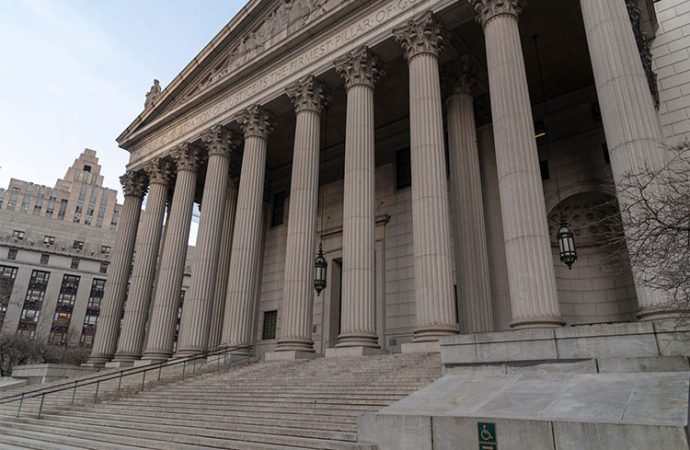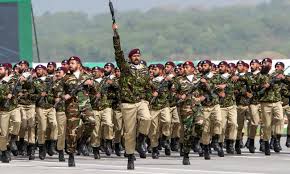Author Recent Posts Alyaan Kazmi Latest posts by Alyaan Kazmi (see all) Powers of the caretaker government: What can they do? – August 16, 2023
Amidst an uncertain political transition in Pakistan, the constitutional role and powers of caretaker government and their potential expansion is a subject of concern within various political spheres. Unlike in many other countries, where elected governments transition to caretaker administrations with limited authority, Pakistan follows a unique approach. Non-elected administrators are appointed to oversee day-to-day state affairs during this critical transitional period. The constitution of Pakistan lays out the process of appointment and defines specific roles and functions for the caretaker government during its short-term tenure. The question at hand is: what powers does the constitution grant to a caretaker government, and what are the possibilities they can explore during their limited term.
The process of appointing a caretaker government in Pakistan is clearly defined in the country’s constitution, with several amendments over time. Prior to the 20th Amendment in 2012, the President had the discretionary authority to select a caretaker prime minister. However, since then, this right has been extended to the outgoing prime minister and the leader of the opposition, who jointly appoint the caretaker setup through consultation. In case of any disagreement or deadlock regarding the choice of a caretaker prime minister, article 224-A of the constitution outlines the formation of a parliamentary committee. This committee includes members from both the government and the opposition, and its purpose is to finalize the name of the caretaker prime minister. If the committee fails to reach a decision within three days, the responsibility falls to the election commission of Pakistan. The commission will then take two days to finalize the suggested name for the caretaker prime minister. These amendments aim to ensure a smooth and fair transition of power during the crucial interim period.
Chapter XIV of the Election Act 2017 precisely outlines the jurisdiction and powers vested in a caretaker government. As detailed in Section 230 of this act, the caretaker government’s role is limited to overseeing essential matters necessary for the day-to-day functioning of the state. Primarily, it exists to aid the Election Commission of Pakistan in ensuring timely and lawful elections. Furthermore, it must confine itself to activities that are routine, non-controversial, and urgent in the public interest, yet reversible by the future government elected after the polls. According to PILDAT President Ahmed Bilal Mehboob, a caretaker setup’s sole purpose is to facilitate the Election Commission of Pakistan and foster a conducive environment for free and fair elections. Section 230 of the act explicitly prohibits the caretaker government from instigating any major policy decisions except urgent matters or appointing or promoting public officials for either short or long terms. However, recent events, particularly concerning excessive promotions and transfers of public officials by the provincial caretaker government in Punjab, have raised serious concerns about potential abuses of power and constitutional violations, rendering the caretaker government susceptible to criticism from its detractors.
Amidst the recent economic crisis in the country, the outgoing government found it necessary to confer additional powers upon the caretaker government. This led to the tabling of an amendment in the national assembly on July 25, targeting clause 1 and clause 2 of section 230 of the election act 2017. The proposed amendment sought to empower the caretaker government to make major policy decisions concerning existing bilateral and multilateral agreements, as well as ongoing projects under the Public Private Partnership Authority Act of 2017, Inter-Governmental Commercial Transactions Act of 2022, and Privatization Commission Ordinance of 2000. The amendment’s introduction sparked a significant outcry from various coalition partners of the government and opposition parties. For example, the Pakistan People’s Party (PPP) vehemently rejected the amendment, asserting that granting such powers to the caretaker government would equate it with the authority of an elected government. In contrast, government lawmakers defended the amendment, clarifying that it would enable caretakers to make urgent economic decisions, strictly adhering to constitutional limits. The crucial argument is this amendment blurs the line between the caretaker government’s temporary role and the powers of elected administrations, potentially leading to an imbalance of power.
Throughout history, the role of caretaker governments in Pakistan has been a subject of contention. The prevailing trust deficit among political parties has led Pakistan to resort to non-elected caretaker setups to ensure free and fair elections and a smooth transition of power. The constitution of Pakistan emphasizes the impartiality of the caretaker government towards all political parties in the country. However, historical records reveal instances of alleged rigging and power abuse, turning the transition process into a political spectacle. To address this structural challenge, Pakistan must pursue viable solutions. One approach could involve reforms aimed at strictly neutralizing the caretaker system. Alternatively, building trust among political parties and adopting a system that conducts elections under the same interim government with substantially reduced powers could be explored. Striking the right balance between continuity and impartiality in the caretaker setup is essential to foster trust in the democratic process and strengthen the foundation of Pakistan’s governance.
- Powers of the caretaker government: What can they do? - August 16, 2023






















Leave a Comment
Your email address will not be published. Required fields are marked with *